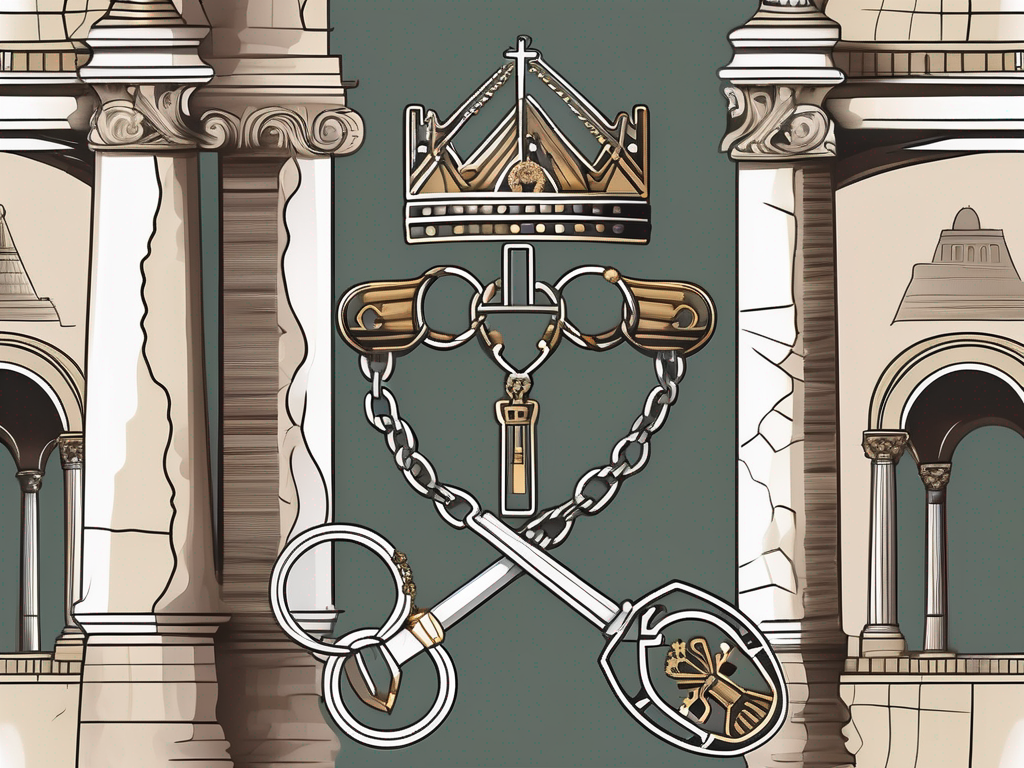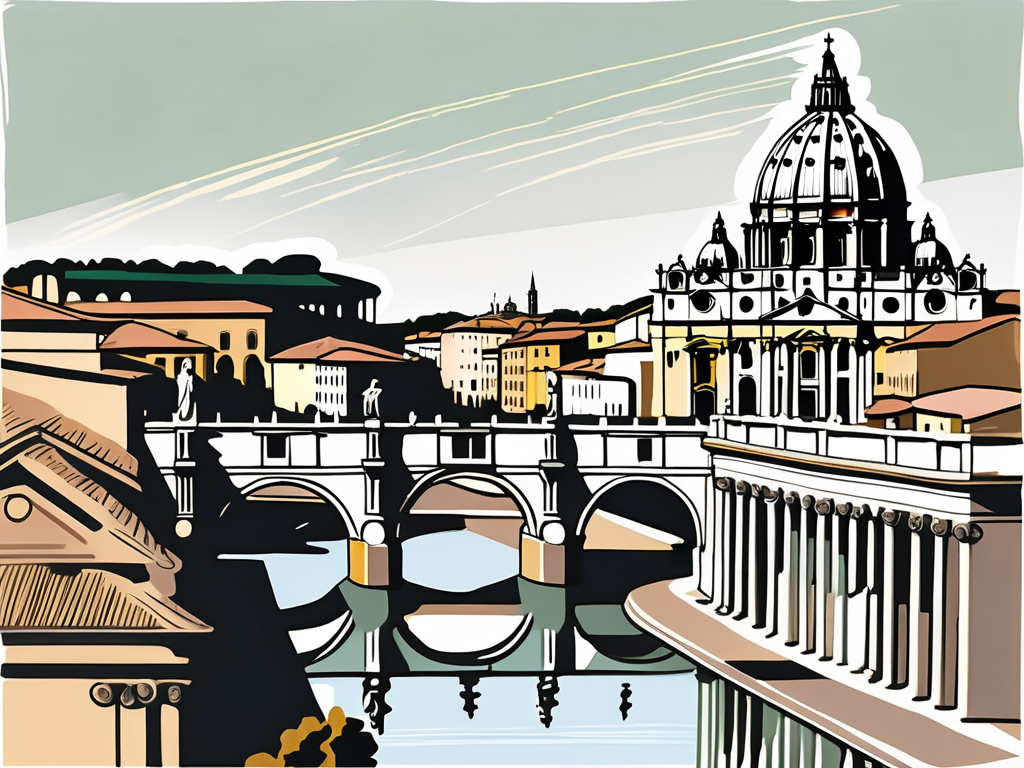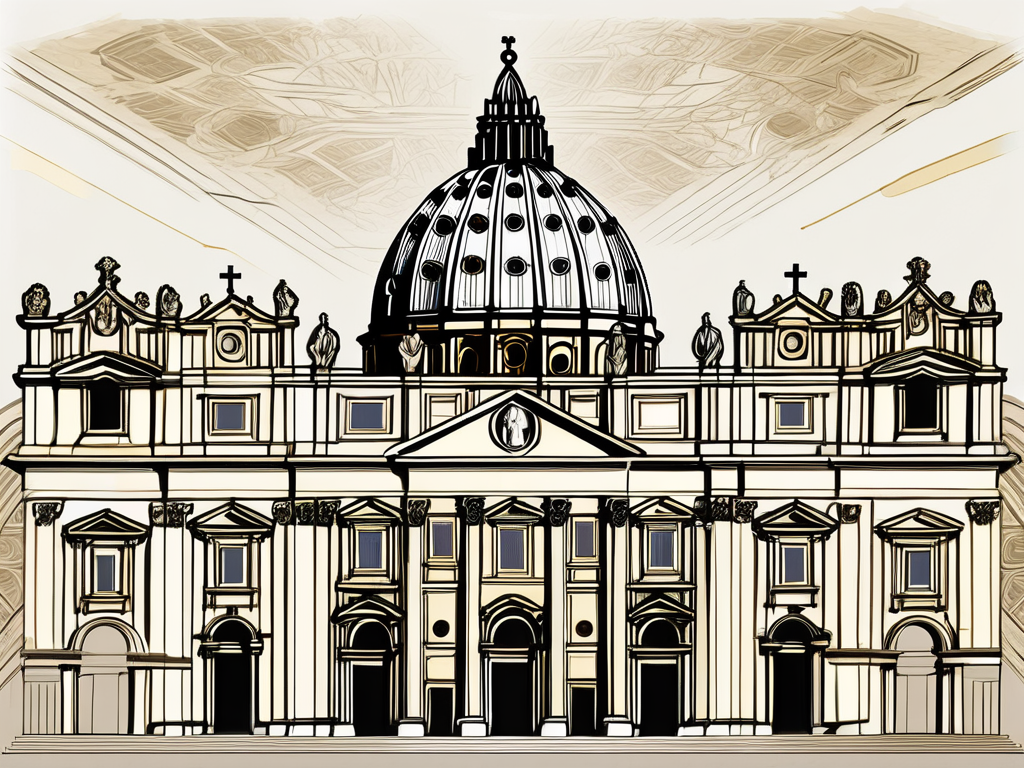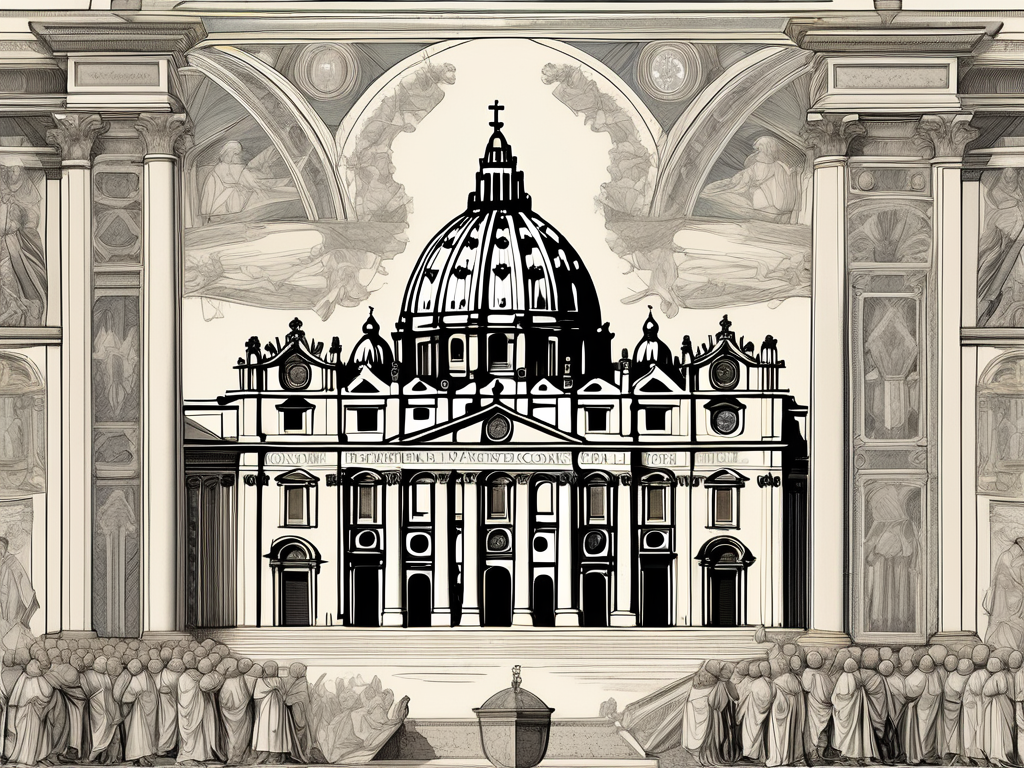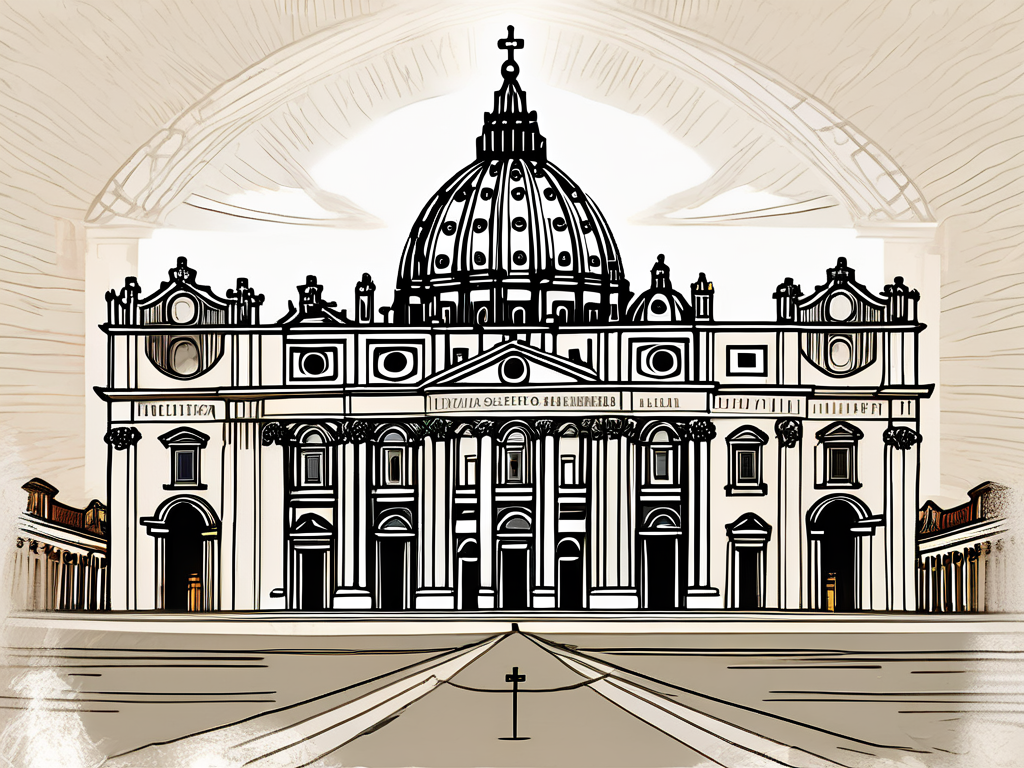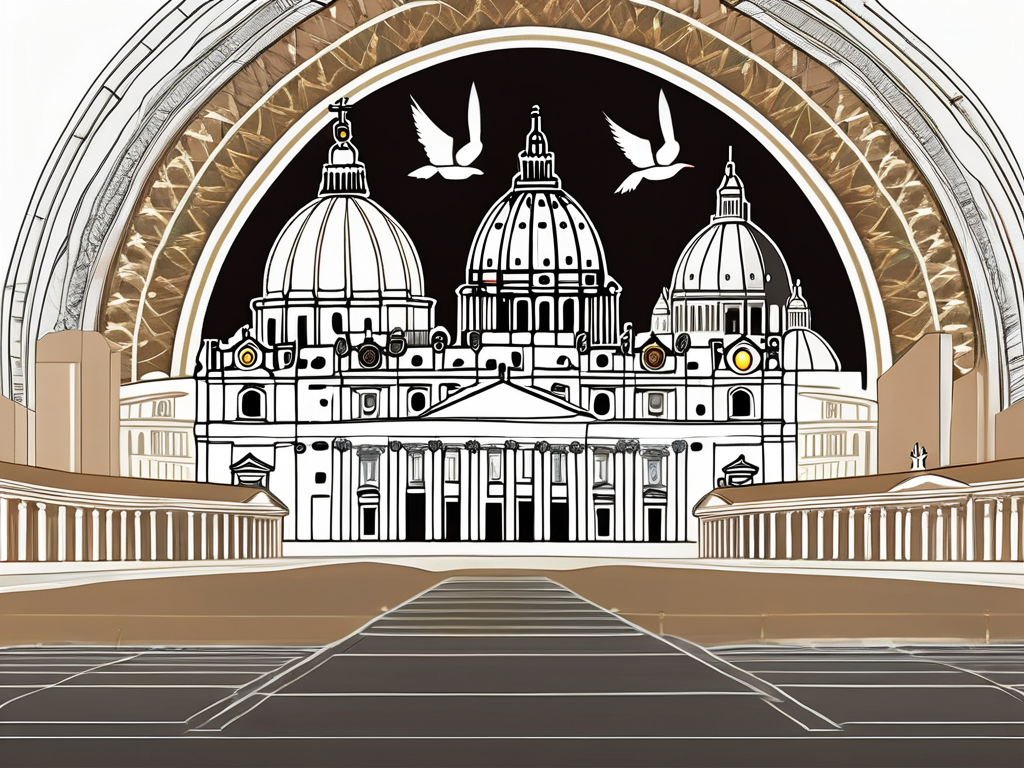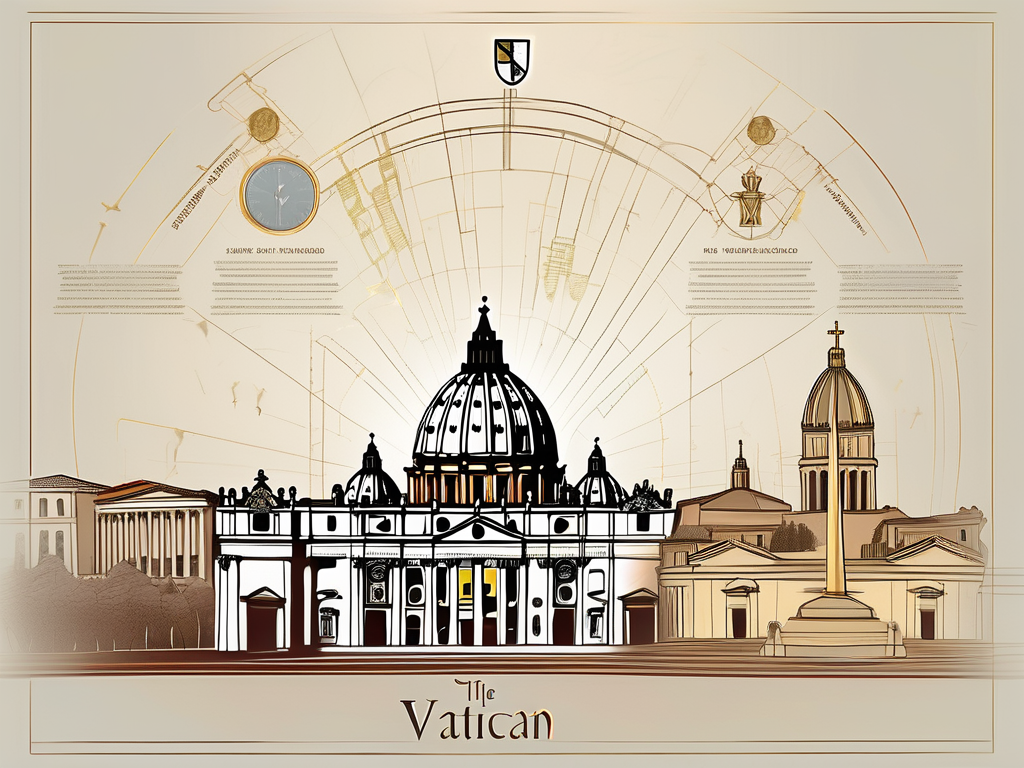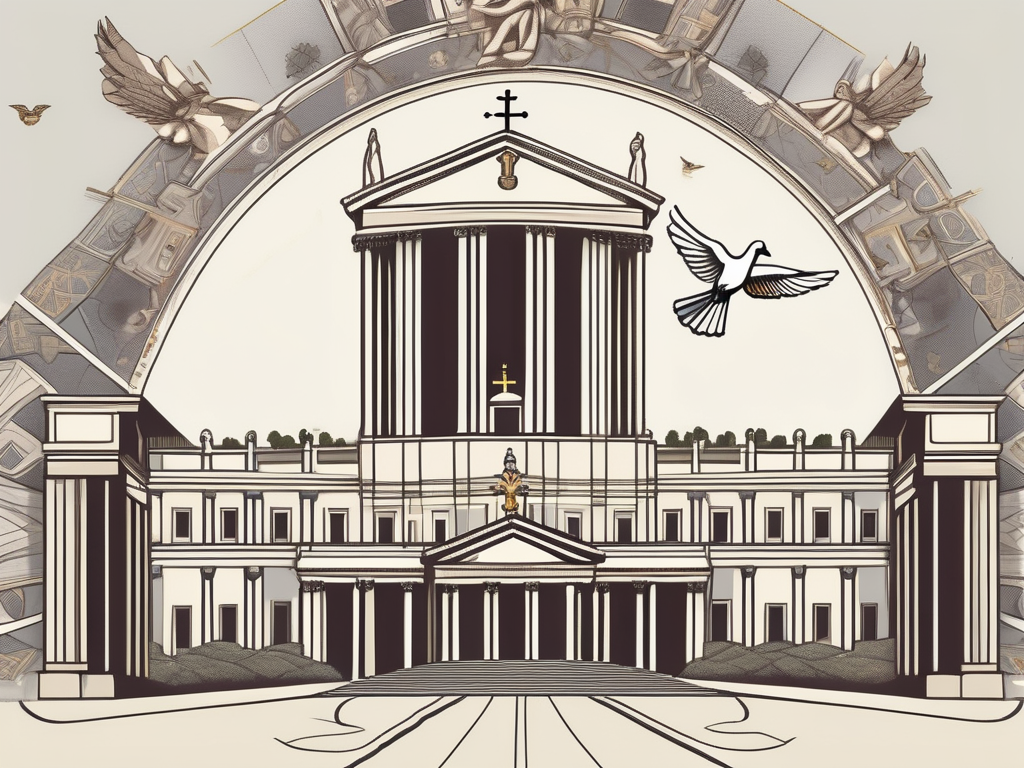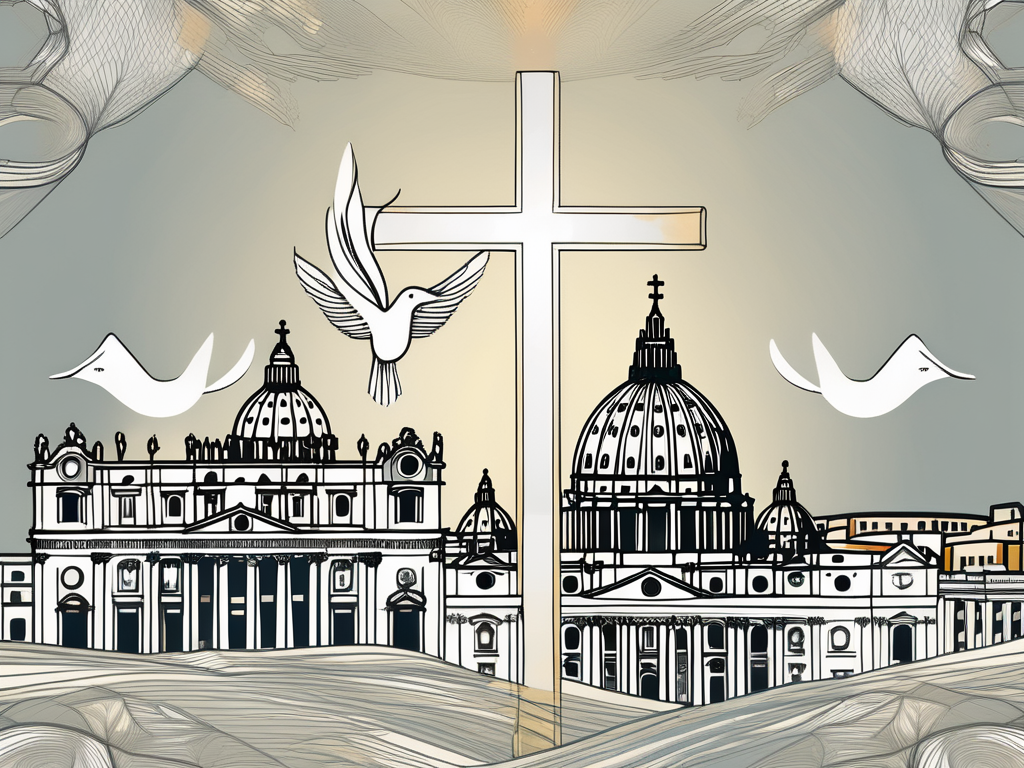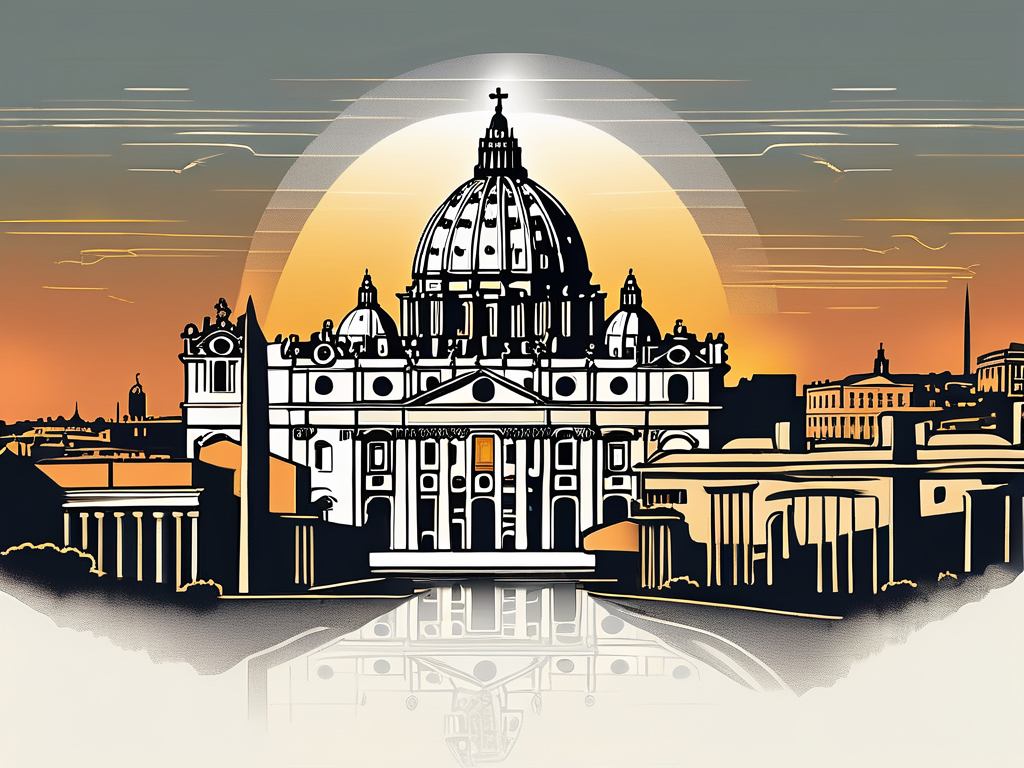In the rich tapestry of Catholic history, few figures have left as indelible a mark as Pope Sixtus II. From his early life and education to his ascension to papacy, his contributions to the Church, and his stand against religious persecution, Sixtus II’s legacy continues to shape the faith we hold dear today. In this article, we’ll delve into the remarkable life of Pope Sixtus II and explore the lasting impact he had on the Church.
Early Life and Education of Sixtus II
Before he became Pope, Sixtus II had a humble beginning. Born into a devout Catholic family, he was raised with a strong religious upbringing that would lay the foundation for his future service to the Church.
Throughout his youth, Sixtus II received a comprehensive religious education. His parents ensured that he learned about the teachings of Jesus Christ and the importance of living a virtuous life. These formative years would shape his character and guide his actions as he embraced his destiny as a future spiritual leader.
Birth and Family Background
Sixtus II was born into a loving and devout Catholic family in Rome. His parents, who were deeply pious, instilled in him the values of faith, compassion, and service to others. Growing up in such a nurturing environment undoubtedly played a significant role in shaping Sixtus II’s strong moral compass.
His family background also provided him with a rich heritage of Catholic traditions and practices. The family would gather together for daily prayers, participate in religious ceremonies, and engage in acts of charity within their community. These experiences fostered a deep sense of devotion and a strong connection to the Church.
Religious Education and Early Influences
From an early age, Sixtus II exhibited a keen interest in matters of faith. His thirst for knowledge led him to delve deep into the teachings of the Church, studying the Scriptures and the works of esteemed theologians. His dedication to his spiritual path was further reinforced by the mentors and role models who guided him along the way.
One of his early influences was a wise and learned priest who recognized Sixtus II’s potential and took him under his wing. This mentor provided him with invaluable guidance, nurturing his intellectual curiosity and encouraging him to explore the depths of theological knowledge.
As he grew older, Sixtus II felt a deep calling to devote his life to the service of God and the Church. This sense of purpose would remain with him throughout his life, propelling him toward remarkable achievements later on.
During his years of religious education, Sixtus II also developed a strong sense of social justice. He witnessed the suffering of the poor and marginalized in society and felt a deep compassion for their plight. This fueled his desire to not only serve the Church but also to work towards creating a more just and equitable society.
His education was not limited to theological studies alone. Sixtus II also received a well-rounded education in various disciplines, including philosophy, literature, and history. This broad knowledge base would later prove invaluable in his role as Pope, as he would need to navigate complex political and social issues.
Overall, Sixtus II’s early life and education laid a solid foundation for his future as a spiritual leader. The values instilled in him by his family, the guidance of his mentors, and his own personal experiences shaped him into a compassionate, knowledgeable, and dedicated individual who would go on to make a significant impact on the Church and the world.
Ascension to Papacy
The momentous occasion of Sixtus II’s election to the papacy marked a turning point in his life and the history of the Church. However, it was not without its fair share of challenges and obstacles that he had to overcome.
Election and Challenges
When the time came for the College of Cardinals to elect a new Pope, Sixtus II’s unwavering faith, knowledge, and dedication to the Church had already set him apart as a prime candidate. Despite initial divisions within the conclave, Sixtus II emerged as the chosen successor to the papal throne.
But the road ahead was far from smooth. The Church faced numerous external threats and internal divisions that tested Sixtus II’s leadership. Yet, undeterred by these challenges, he embarked on a journey to heal the wounds and strengthen the unity of the faithful.
Key Decisions and Policies
During his papacy, Sixtus II made crucial decisions and enacted policies that left an indelible mark on the Church. His visionary approach fostered the growth of the Church, both spiritually and architecturally.
Recognizing the power of art in invoking devotion and capturing the essence of faith, Sixtus II became a great patron of the arts. He commissioned magnificent artworks and constructed grand cathedrals, creating spaces where believers could connect with the divine and find solace in prayer.
Moreover, Sixtus II’s theological contributions and writings continue to inspire scholars and theologians to this day. Through his profound understanding and interpretation of sacred texts, he illuminated the depths of the Catholic faith for generations to come.
Contributions to the Church
One of Sixtus II’s most significant contributions to the Church was his unwavering support for the arts. His patronage of architecture and artistic endeavors yielded breathtaking creations that continue to inspire awe and wonder to this day.
Architectural and Artistic Patronage
During his papacy, Sixtus II oversaw the construction of magnificent structures that have stood the test of time. His vision encompassed breathtaking cathedrals and basilicas, adorned with intricate artwork that captured the essence of the divine.
These architectural marvels, such as the Basilica of Santa Maria in Trastevere, stand as testaments to Sixtus II’s commitment to creating sacred spaces where believers could seek solace, find inspiration, and foster a deeper connection with their faith.
Theological Contributions and Writings
Not only was Sixtus II a patron of the arts, but he was also a learned theologian in his own right. His theological writings and teachings delved into the core tenets of the Catholic faith, shedding light on complex theological concepts and providing spiritual guidance to the faithful.
His works, spanning a wide array of subjects, continue to serve as valuable resources for Catholic scholars, theologians, and those seeking a deeper understanding of their faith. The intellectual legacy of Sixtus II is a testament to his dedication to the pursuit of truth and the dissemination of knowledge.
Sixtus II and the Roman Persecutions
It was during a turbulent period in Roman history that Sixtus II faced his greatest test of faith. The Roman Empire subjected Christians to brutal persecutions, but the Pope’s unwavering conviction and courage shone brightly in the face of adversity.
Stand Against Religious Persecution
Sixtus II, resolute in his faith, fearlessly denounced the oppressive measures taken against the followers of Christ. He spoke out against the persecution, offering solace and support to his fellow believers who faced unimaginable hardships.
Despite the risks, Sixtus II remained determined to uphold the teachings of love, compassion, and forgiveness that defined the Christian faith. His unwavering stand against religious persecution served as a source of inspiration to the faithful, bolstering their resolve in the face of adversity.
Martyrdom and Death
As the persecution of Christians intensified, Sixtus II’s unyielding commitment to Christ ultimately led to his martyrdom. In an act of selflessness and immense courage, he refused to renounce his faith, even in the face of certain death.
Sixtus II’s martyrdom remains a poignant testament to the lengths a person of faith will go to defend the truth. His sacrifice serves as a reminder of the enduring power of faith and the unbreakable bond between God and His faithful servants.
Legacy of Pope Sixtus II
The profound impact of Pope Sixtus II’s life and legacy extends far beyond his time on Earth. Remembered as a champion of the arts, a staunch advocate for religious freedom, and a theologian of great wisdom, his influence continues to reverberate throughout the Church.
Canonization and Sainthood
In recognition of his virtuous life and the ultimate sacrifice he made for his faith, Pope Sixtus II was canonized as a saint in the Catholic Church. His feast day, celebrated annually on August 6th, serves as a reminder of his unwavering commitment to God and the Church.
Influence on Future Popes and the Church
Pope Sixtus II’s profound impact on the Church can be felt in the actions and teachings of subsequent popes. His steadfast leadership, unwavering commitment to the truth, and dedication to the spiritual growth of the faithful have served as guiding principles for future pontiffs.
The legacy of Pope Sixtus II lives on, not only in the physical structures he helped create but also in the hearts and minds of believers who draw inspiration from his unwavering faith and selfless devotion.
By exploring the life and legacy of Pope Sixtus II, we gain a deeper appreciation for the sacrifices made by those who came before us. As we navigate the complexities of our own faith journeys, we can draw strength and inspiration from the unwavering commitment of figures like Sixtus II. His remarkable contributions to the Church continue to illuminate the path for believers, guiding us towards a deeper understanding of our faith and a more profound connection with God.
